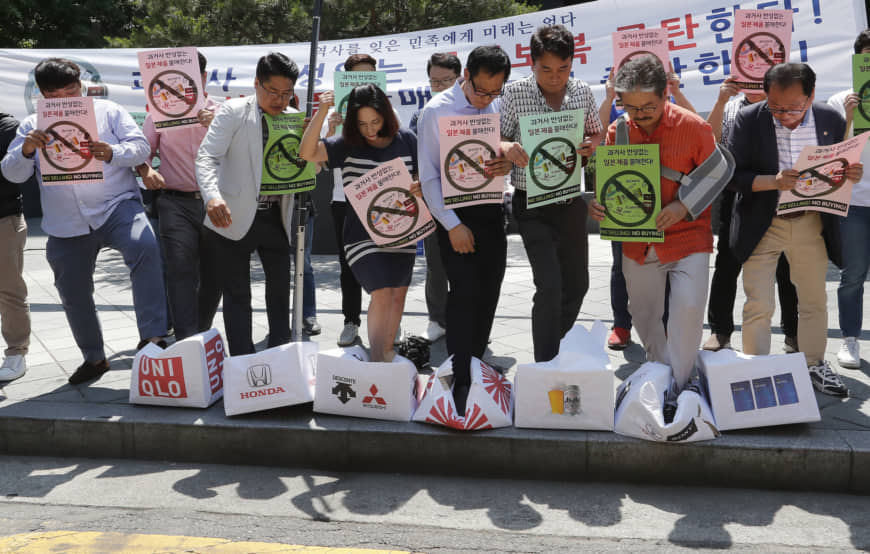Seoul [South Korea], July 19: Seoul has opposed taking any countermeasures, saying it would raise the spat with the World Trade Organization (WTO). Be that as it may, Koreans are bringing matters into their very own hands by boycotting everything that is Japanese as the diplomatic row between South Korea and Japan intensified.
Such displeasure has provoked a widespread boycott of Japanese items and administrations, from beer to garments and travel, disturbing organizations in what was the most exceedingly terrible financial atmosphere for South Korea in 10 years, according to Reuters news reports.
Supermarket manager Cho Min-hyuk, who deals with a 1,500 square meter Purunemart general store in Seoul, is enduring the shot willfully. More than 200 different general stores and markets are doing likewise, as per Korea Mart Association, a trade committee representing them.
While adding that 10-15 percent drop in sales which he is already facing, Cho said: “Japan putting pressure on South Korea through export curbs, showing no regret over its past wrongdoings, is completely unacceptable.”
Diplomatic tensions have been intensified since a South Korean Supreme Court ordered last year Japanese firms to compensate Koreans who were forced to work for Japan’s occupiers during World War II.
In an apparent retaliation on July 4, Japan imposed a high restriction on exports of high-tech tools to South Korea but rebuffed the action was anything related to the compensation issue.
Tokyo cited “inadequate management” of the sensitive exports, with state-run media broadcaster reporting some products ended up in North Korea.
Japan’s foreign minister Taro Kono on Friday summoned South Korean ambassador in an escalating diplomatic spat over compensation for forced labour during World War II that threatens global supply chain of mobile’s display screens and memory chips, a day after Japan’s midnight deadline for South Korea to approve a third-nation arbitration of the forced wartime labour dispute passed.
However, Seoul has dismissed the third-country arbitration with Kono stating South Korea must take some swift actions to correct what Tokyo says was an unacceptable ruling of last year by Seoul’s Supreme Court ordering two Japan’s companies to compensate the wartime workers.
The dispute took a sudden tragic turn today when a South Korean national set himself on fire while protesting apparently in front of the Japanese embassy in S Korea’s capital Seoul, according to Reuters news reports.
Japan was considering to move the International Court of Justice (ICJ) against South Korea over a dispute of forced labour
Also read:
- Japan’ foreign minister Kono summons S Korean envoy Nam; discuss wartime forced labour dispute
- Japan may move International Court of Justice against S Korea wartime forced labour dispute

